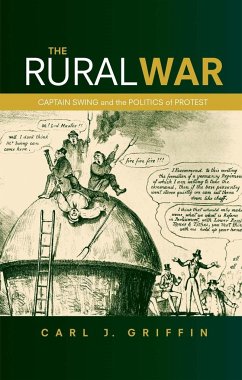Beginning in Kent in the summer of 1830 before spreading throughout the country, the Swing Riots were the most dramatic and widespread rising of the English rural poor. Seeking an end to their immiseration, the protestors destroyed machines, demanded higher wages and more generous poor relief, and even frequently resorted to incendiarism to enforce their modest demands. But occurring against a backdrop of revolutions in continental Europe and a political crisis, Swing was perceived to represent a genuine challenge to the existing ruling order, provoking a bitter and bloody repression. This uprising is pivotal in understanding the impacts of industrialisation and commercialisation on rural English society, histories of the changing British state, social welfare, criminality and gender. In the first systematic re-assessment of Swing in over forty years, Carl Griffin deftly analyses it's form and scope, placing the movement into the context of social relations in the early nineteenth-century countryside. Focusing on the south-eastern heartland of Swing - the area where it started and lasted longest - it is shown that protests were more organised, widespread, intensive and politically-motivated than has hitherto been thought. The author shows that Swing was not only an attempt to materially improve the lot of the rural worker but also represented complex statements about the nature of authority and the politics of rural life. Based on meticulous original research, The rural war offers a strikingly new and vivid account of this defining moment in British history. This book will become essential reading for anyone with an interest both in the history of the English countryside and protest history: specialists, students and general readers alike.
Hinweis: Dieser Artikel kann nur an eine deutsche Lieferadresse ausgeliefert werden.
Hinweis: Dieser Artikel kann nur an eine deutsche Lieferadresse ausgeliefert werden.








